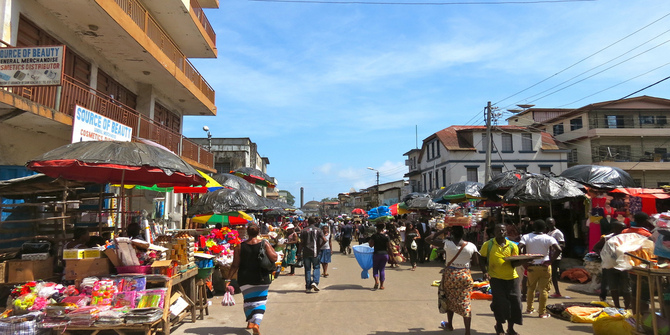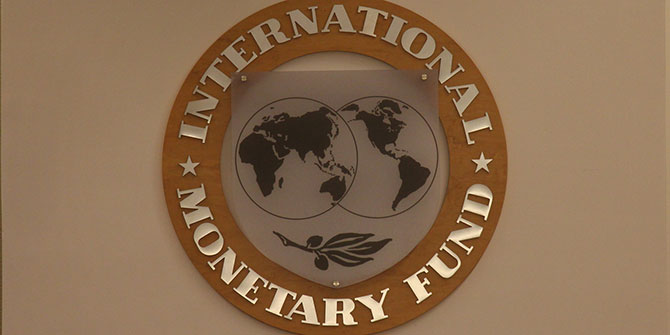The political marketplace model identifies the incentives and constraints that shape political struggles in conflicted societies. Alex de Waal responds to Teddy Brett’s critique of the model’s limitations, and argues its analysis is best able to serve progressives who seek to rescue equitable social values in unstable countries.
Read the original critique of the political market model by Teddy Brett.
I appreciate Teddy Brett’s commentary, critique and proposals for how we might develop the framework of the political marketplace, in the countries of Africa and the Middle East, and beyond. However, I suggest that if our starting point is the contemporary crisis of order among states of all kinds, our trajectory will be different to that he suggests.
Much social and political science is premised on a deep underlying assumption that we are gradually creating social and political orders – paradigmatically, states – that reduce disorder in the world. Historians and political scientists have long assumed that processes of establishing and deepening the ‘rules of the game’, such as state formation, may be modulated, leavened and at certain moments even reversed by hybridisation, but nonetheless the broad sweep of history is towards state-based order-making. The starting point for my analysis is that, at least at this current juncture, this is not the case: our political and economic forms, including states, are being thoroughly disordered.
In the countries under study in our research programme, the reality for the last generation and likely the next is turbulence. Politics and society are chaotic and unpredictable from one month to the next, although there are recognisable patterns over time. Those patterns are driven by the corrosive forces of the political market, which commodify social relations including political allegiances, political services and political office and its privileges (including sovereignty). But it is unclear what is being constituted in their stead, other than a fundamentally disordered world in which the principles of a market – a financialised, systemically volatile and risk-prone market – rule. We could call this ultra-capitalism: when the rules of the political game are set on the profit principle.
Thus, each of the three points of critique of the political market model, with their proposed elaboration of the framework, I suggest should go in a different direction. Let me take them in reverse order.
Infrapolitics and hybridity
We are concerned with countries that cannot be considered masters of their own destiny. Even their rulers have very limited quanta of power, considered globally. These are small open political economies at the margins of the world’s metropolitan political and economic systems, tossed on the turbulent waters churned up by the disruptions of the metropoles. They are vulnerable not just to perturbations in the global economy but also to transnational political patronage as well. Those in charge of peripheral countries can only keep their boats afloat in this squally weather, rather than navigate across the ocean to the destination of political order and developmental modernity.
In this era, the literature we should look to for understanding resistance is no longer James Scott, who (brilliantly) examines the historic evasion and resistance of previous eras. Rather, we should look to those who study the subaltern networks and adaptations in the ravaged political economies of contemporary ultra-capitalism. So we should draw upon, for example, Anna Tsing’s Mushroom at the End of the World. Tsing provides a Scott-esque parable for the contemporary era: how the most sought-after mushroom for Japanese cuisine, the matsutake, grows in ruined forests, and how the transnational networks of precarious people who forage for these mushrooms, and market them, are comparably working in the interstices of an over-regulated yet disordered global political economy.
Managing political competition
These perspectives are also relevant to managing political competition. We are dealing with governments that are not acting in an institutionalised manner. They comprise rivalrous members of a political elite focussed on getting or retaining power. Transactional politics is focussed on short-term survival. This has always been the case. What is systemically new is that even ruling elites are precarious: they govern in a context in which the consolidation of power today does not contribute to state formation tomorrow. Their most important questions are the sources and constraints on political finance and the imperfect substitutability between money and violence in managing political rivalries.
Government resources
Turning to how governments acquire resources: it is absolutely necessary to study this. But let us not assume that governments have the capability for managing political competition or rivalry. Let us also not assume that politics is governed by a single set of rules of the game: political games are not monolingual.
In all countries, and especially those in which diverse political traditions are fused and managing today’s informal marketised multilateralism, there are multiple political language games conducted, and the more talented political actors are those able to break one set of rules so as to innovate in another. These are not static, just as creoles are the most dynamic and fast-evolving linguistic type. In the past, it was subaltern politicians who were multilingual – signalling one thing to their constituents while speaking differently to the colonisers or aid donors. Today, as disruption becomes normatively valued on the political right, it is the more powerful agents of ultra-capitalism who are deliberately and disruptively multilingual.
It is such analyses of our current predicament that can, I suggest, best serve progressives today who are seeking to rescue some of those hard-won values of an equitable social order. These are the values being trampled on by the disruptions of political markets.
Photo: Rwandan UNAMID Peacekeepers Patrol in North Darfur. Credit: UN Photo- Olivier Chassot (CC BY-NC-ND 2.0).





